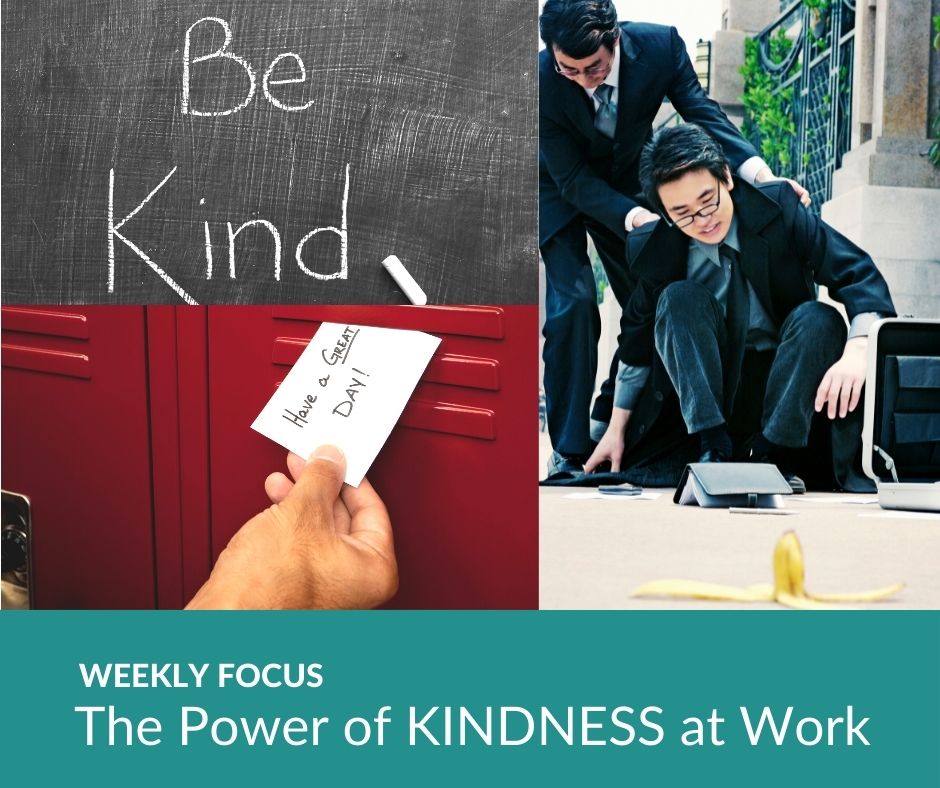What is Kindness?
If I asked you to think of someone kind – someone you know and have experienced their grace, who would you name? You think of them, and kindness comes to mind.
Funny, isn’t it, how kind acts unfold in common and sometimes very unusual ways – lighting the path not only of the giver and the receiver but everyone who hears or witnesses the story. There is a power to kindness.
I like to think of kindness as the quality of being a warm-hearted, considerate person who interacts humanely with others, enlisting sympathy, compassion, and truth.
Kindness, at its most basic level, reflects the basic tenents you learned as a child.
The Health Benefits of Kindness
Have you noticed how giving and receiving benevolence improves your well-being? There is a specific “high” to the internal sense of goodness. We’ve learned that we can attribute some of that to the increase in the hormone serotonin that enters our bloodstream, which helps us feel happy and calm. As a result, our blood pressure lowers, and cardiovascular health can improve.
It’s no surprise then that kindness also positively impacts a workplace’s morale and culture. People feel less anxious, more energetic and even experience improved confidence levels when around kindness.
A Great Place to Be
A happy workplace has several reliable characteristics. People have positive attitudes and reliable output, and although it’s the workplace, we like being there. It is okay to be ourselves. We are safe and among friends.
Kindness in a workplace is contagious and creates a kind of “pay-it-forward” vibe. When we experience respectful and gentle attitudes from others, there is an instant surge of well-being and calm, which, more often than not, encourages us to bestow similar acts of kindness onto others.
So what are some ways of being kind in the workplace? Displaying service and empathy at work resembles the kindness we practice in our daily lives.
What Does Kindness Look Like in the Workplace?
Be helpful
Remember to be a giver. Whenever possible, try to provide your coworkers with what they need in specific and practical ways to make a difference. Be helpful by being generous with your time and willing to share your insights and ideas. More importantly, respect your coworker’s time, wisdom, and ideas. Finally, do what you can to facilitate people’s overall objectives.
Be polite
Politeness can indeed influence work culture, so practice civil and respectful behavior. Consciously refrain from rude and condescending reactions to things or people with whom you disagree. Do your best to avoid negatively influencing a coworker’s mood and how they go about their workday. Politeness matters because of the influence it has on people.
Be authentic
Authenticity creates a work culture that encourages people to be more connected with themselves and each other. A greater sense of community and loyalty toward one’s employer is often a by-product of authenticity at work. Conversely, when an organization suffers from inauthenticity, the consequences are often a lack of genuine commitment among its employees.
Be rational
Don’t be so quick to judge or to blame and refuse to jump to conclusions about coworkers. People will sometimes behave differently in different situations. Remember, we can find ourselves in difficult circumstances that tap into our fears and reactions. People are not always at their best, but it doesn’t define them overall. Judging and blaming are both unfair and potentially detrimental to cohesion in workplace teams.
Be receptive
When coworkers provide feedback, treat these as opportunities to see how others see and think of you. How often are you given a chance to learn more about yourself from somebody else’s perspective? These moments are unique, and you should treat them as such. Accepting constructive feedback in a professional and empathetic manner is an essential skill for any professional to master. It will provide you with a golden opportunity to learn more about yourself and show your colleagues that you are open to constructive feedback and personal growth.
Be sorry
All it takes to start an apology is to say you are sorry. In saying we are sorry, we are doing two things: admitting our guilt and asking for forgiveness and understanding. There are times where you’ll feel an apology is not in order, that you haven’t done anything wrong. Take the high road. It will benefit everyone in the end. Especially yourself.
When others aren’t so kind
Unfortunately, not everyone will be kind at work. No matter what you do, there are those coworkers who, for their reasons, have their way of being.
Please take comfort knowing that being kind is a strength, so treat it like your superpower. You have the power to be kind, and that is what you have chosen to do. Remember that you can be kind while also being assertive and firm—even when others are behaving unkind, crummy, and not at their best. But this doesn’t mean that you can’t be at your best.
Don’t give your superpower away to negative and uninspired people. You are choosing to be kind because it is the right thing to do – and it makes you feel good!
When we choose to be kind, we bring out the kind, positive qualities in others. Our kindness encourages other acts of service at our workplace. As a result, we collectively enjoy a kinder, happier workforce, which invariably leads to better ideas, better outputs, and perhaps most importantly, a more comfortable work culture.






